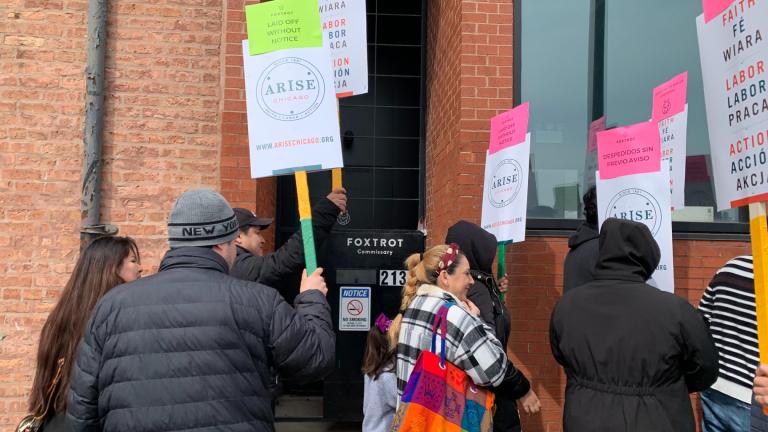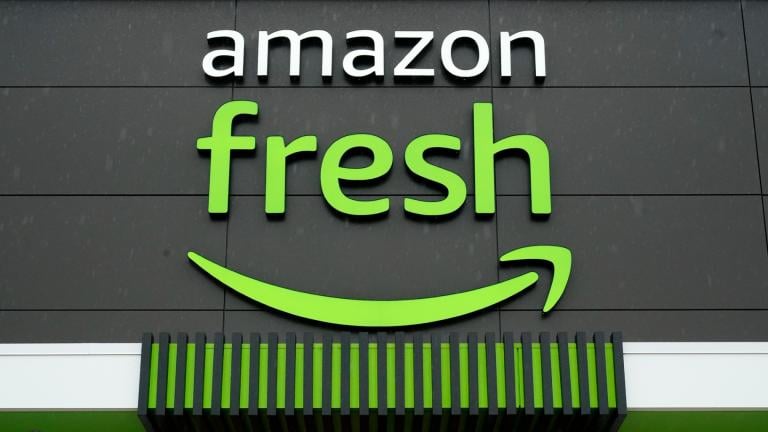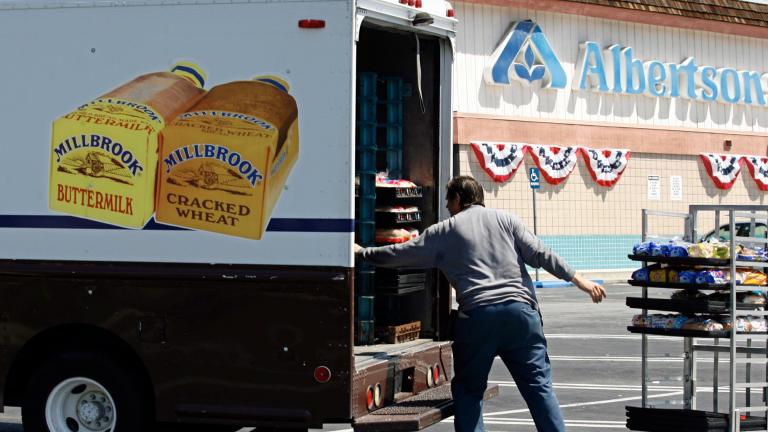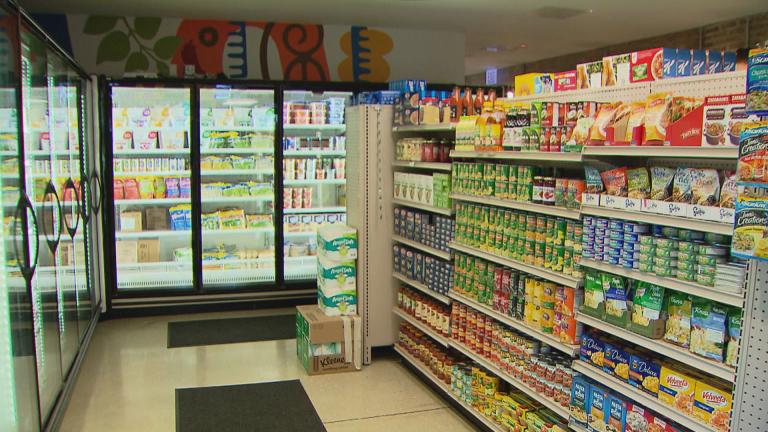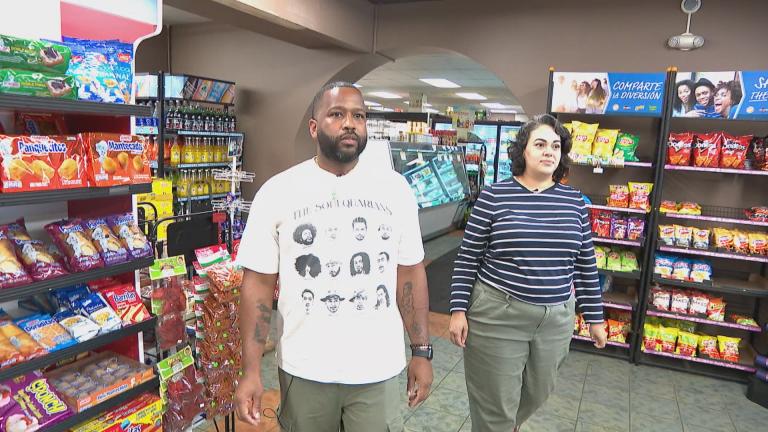Video: Joining “Chicago Tonight: Latino Voices” are LaTanya Jackson Wilson, vice president of advocacy at the Shriver Center on Poverty Law, and Mayor Gary Grasso of suburban Burr Ridge. (Produced by Emily Soto)
Illinois shoppers would save a dollar when they buy $100 worth of groceries under Gov. J.B. Pritzker’s proposal to eliminate a state sales tax on groceries.
Chicago stands to lose considerably more — as much as $80 million per year — according to the Illinois Municipal League.
The league estimates the tax change would cost Batavia and Highland Park about $1 million annually, Joliet $3 million, Orland Park $2.5 million and Western Springs $580,000.
Although the grocery sales tax is a creature of state law, the money collected from grocery receipts within a jurisdiction is transferred to local governments.
The league calls the proposal to eliminate the 1% grocery sales tax a “massive revenue reduction that will negatively impact all municipalities.”
The Illinois Municipal League is asking mayors and local leaders to report the projected amount their towns would lose if the proposal becomes law, as a means of pressuring lawmakers to oppose the plan.
Municipalities traditionally hold sway with legislators, many of whom came up through local government ranks.
But tossing a tax is popular, both across the political aisle and with shoppers who frequent grocery aisles.
While Republicans are largely against the budget that Pritzker, a Democrat, unveiled in mid-February, they favor doing away with the grocery tax.
“It’s the most regressive tax you could have, really,” Pritzker said recently. “You think about all the regressive taxes that exist in the state of Illinois, this one goes after people who are just trying to buy food.”
Pritzker said a $1 savings on $100 of food may not seem like much but “that could be hundreds of dollars for a family across a year. That matters to many people.”
A family would have to spend $10,000 on eligible items in order to save $100, and triple that — at least $30,000 — to save several hundred dollars in the grocery tax.
The 1% grocery sales tax applies to most foods, as long as it’s not food intended to be consumed immediately — so, takeout and meals at restaurants don’t qualify. Alcohol, candy and soft drinks also aren’t considered groceries for tax purposes.
When it comes to saving municipalities’ finances from the budget hit they would take if the grocery tax is wiped out, Pritzker said his as-yet-to-be-formally-introduced plan has another component: giving municipalities the option to impose their own sales tax on groceries.
“If they want to impose a grocery tax on their local residents, they should be able to go do that,” he said. “I don’t think it’s the right thing to do, I wouldn’t do it locally. Having said that, I understand the need for the dollar, and if they feel like they need them they should think about imposing that tax on their own.”
It’s a setup that would give municipalities an alternative to budget cuts or raising property taxes, while also giving Pritzker a win and forcing local politicians to wear the jacket for a tax hike.
Under Pritzker, Illinois has increased the portion of the state income tax that’s forwarded to municipalities.
In August 2022, the local share of all individual income taxes collected increased from 6.06% to 6.16%, and it went up in 2023 to 6.47%.
“I believe in investing in local government,” Pritzker said. “It’s closest to the people. They deserve to have the kind of funding that they need to support local projects and local government. But grocery tax doesn’t seem like the best way to do that.”
The Illinois Municipal League is pushing for municipalities to receive a greater portion of the income tax, but Pritzker did not include an increase in what’s known as the Local Government Distributive Fund in his proposed budget.
Note: This article was published March 4, 2024, and updated with video March 7, 2024.
Contact Amanda Vinicky: @AmandaVinicky | [email protected]

